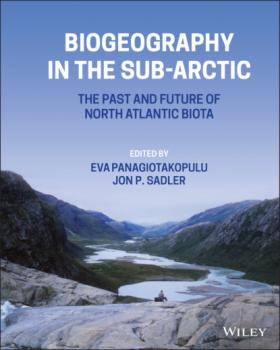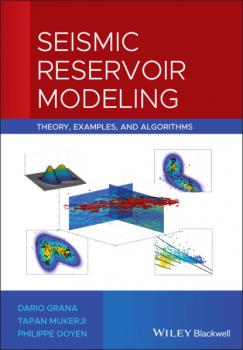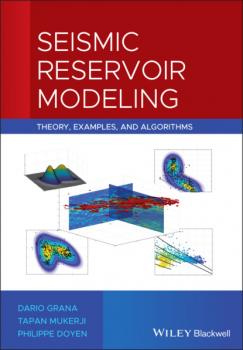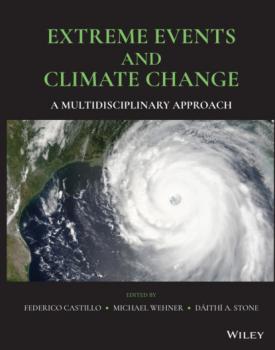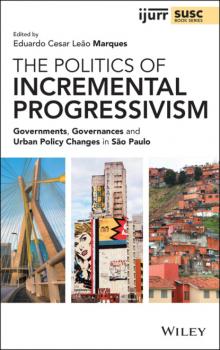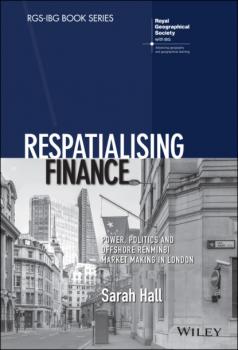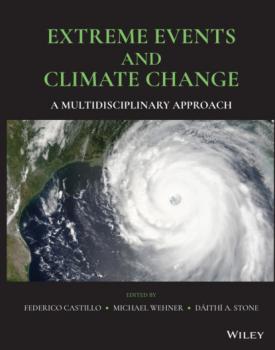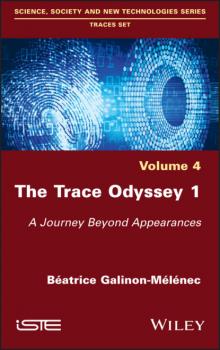География
Различные книги в жанре ГеографияSeismic Reservoir Modeling
Seismic reservoir characterization aims to build 3-dimensional models of rock and fluid properties, including elastic and petrophysical variables, to describe and monitor the state of the subsurface for hydrocarbon exploration and production and for CO₂ sequestration. Rock physics modeling and seismic wave propagation theory provide a set of physical equations to predict the seismic response of subsurface rocks based on their elastic and petrophysical properties. However, the rock and fluid properties are generally unknown and surface geophysical measurements are often the only available data to constrain reservoir models far away from well control. Therefore, reservoir properties are generally estimated from geophysical data as a solution of an inverse problem, by combining rock physics and seismic models with inverse theory and geostatistical methods, in the context of the geological modeling of the subsurface. A probabilistic approach to the inverse problem provides the probability distribution of rock and fluid properties given the measured geophysical data and allows quantifying the uncertainty of the predicted results. The reservoir characterization problem includes both discrete properties, such as facies or rock types, and continuous properties, such as porosity, mineral volumes, fluid saturations, seismic velocities and density. Seismic Reservoir Modeling: Theory, Examples and Algorithms presents the main concepts and methods of seismic reservoir characterization. The book presents an overview of rock physics models that link the petrophysical properties to the elastic properties in porous rocks and a review of the most common geostatistical methods to interpolate and simulate multiple realizations of subsurface properties conditioned on a limited number of direct and indirect measurements based on spatial correlation models. The core of the book focuses on Bayesian inverse methods for the prediction of elastic petrophysical properties from seismic data using analytical and numerical statistical methods. The authors present basic and advanced methodologies of the current state of the art in seismic reservoir characterization and illustrate them through expository examples as well as real data applications to hydrocarbon reservoirs and CO₂ sequestration studies.
Growing Up and Getting By
Bringing together new, multidisciplinary research, this book explores how children and young people across Europe, Asia, Africa and the Americas experience and cope with situations of poverty and precarity. It looks at the impact of neoliberalism, austerity and global economic crisis, evidencing the multiple harms and inequalities caused. It also examines the different ways that children, young people and families ‘get by’ under these challenging circumstances, showing how they care for one another and envisage more hopeful socio-political futures.
Extreme Events and Climate Change
An authoritative volume focusing on multidisciplinary methods to estimate the impacts of climate-related extreme events to society As the intensity and frequency of extreme events related to climate change continue to increase, there is an urgent need for clear and cohesive analysis that integrates both climatological and socioeconomic impacts. Extreme Events and Climate Change provides a timely, multidisciplinary examination of the impacts of extreme weather under a warming climate. Offering wide-ranging coverage of the methods and analysis that relate changes in extreme events to their societal impacts, this volume helps readers understand and overcome the methodological challenges associated with extreme event analysis. Contributions from leading experts from across disciplines describe the theoretical requirements for analyzing the complex interactions between meteorological phenomena and the resulting outcomes, discuss new approaches for analyzing the impacts of extreme events on society, and illustrate how empirical and theoretical concepts merge to form a unified plan that enables informed decision making. Throughout the text, innovative frameworks allow readers to find solutions to the modeling and statistical challenges encountered when analyzing extreme events. Designed for researchers and policy makers alike, this important resource : Discusses topics central to understanding how extreme weather changes as the climate warms Provides coverage of analysis methods that relate changes in extreme events to their societal impacts Reviews significant theoretical and modeling advances in the physical aspects of climate science Presents a comprehensive view of state of the science, including new ways of using data from different sources Extreme Events and Climate Change: A Multidisciplinary Approach is an indispensable volume for students, researchers, scientists, and practitioners in fields such as hazard and risk analysis, climate change, atmospheric and ocean sciences, hydrology, geography, agricultural science, and environmental and space science.
The Politics of Incremental Progressivism
The Politics of Incremental Progressivism analyzes urban policies in São Paulo – one of the biggest and most complex Southern cities – not only challenging the misconception that large metropolises of the Global South are usually ungovernable, but showing the recent occurrence of progressive change. The first detailed and systematic account of the policies and politics that construct, maintain and operate a large Southern metropolis Analyzes the policies of bus and subway transportation, traffic control, waste collection, development licensing, public housing and large urban projects, additionally to budgeting, electoral results and government formation and dynamics Contains original researches about urban policies in a Southern metropolis, and a theoretical focus that bridges the gap between political science and urban studies Contributes to the understanding of how the city is governed, what kinds of policies its governments construct and deliver and, more importantly, under what conditions it produces redistributive change in the direction of policies that reduce its striking social and urban inequalities
The Trace Odyssey 1
Whether it is to look to the past in search of their origins, analyze their present activity, particularly digital, or to think about the effects of their actions on the future, 21st century humans regularly question their traces. Collective questions and technical progress offer new resources which, in turn, raise the problems of traces. <p>In order to reveal the difficulties posed by the unanalyzed trace, this book proposes a journey through different contexts. Along the way, intellectuals (including Bateson, Barthes, Bourdieu, Derrida, Goffman, Peirce, Ricoeur, Varela, Thompson, Watsuji and Watzlawick) and trace professionals (such as police officers or computer scientists) shed light on the background to this veritable odyssey. <p>This didactic book presents a contemporary exploration of the fundamental nature of the trace via the new French paradigm of the Ichnos-Anthropos (Homme-trace) and its corollary, the corps-trace.
